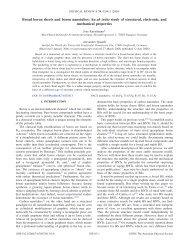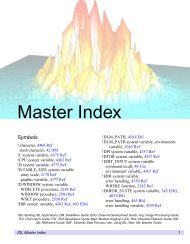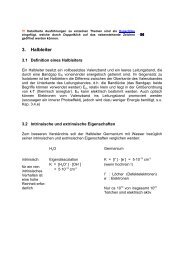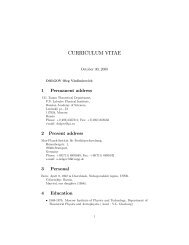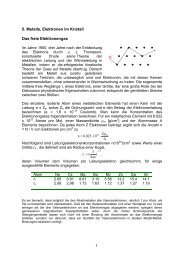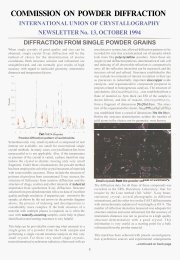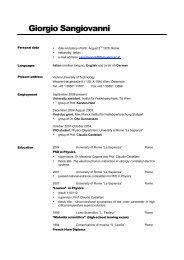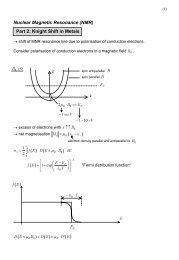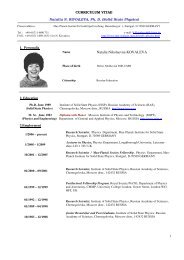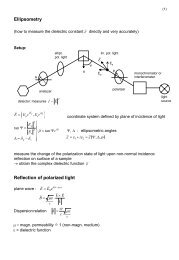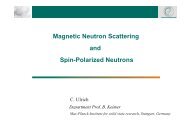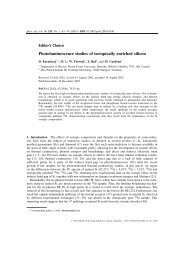Magnetic Neutron Scattering and Spin-Polarized Neutrons
Magnetic Neutron Scattering and Spin-Polarized Neutrons
Magnetic Neutron Scattering and Spin-Polarized Neutrons
You also want an ePaper? Increase the reach of your titles
YUMPU automatically turns print PDFs into web optimized ePapers that Google loves.
Hax0where0ha ~ is theH2emagnetic flux quantuma~ 500Å for H 1TThe periodic magnetic field distribution generated by the flux line lattice insidethe superconductor can be revealed by magnetic neutron scattering. Becausethe lattice constant a is large, the scattering angle ~ is small. Even for cold2aneutrons ~5Å <strong>and</strong> relatively high magnetic fields H~ 1 T, is less than1°. In order to obtain the resolution required to separate the Bragg reflectionsfrom the unscattered beam, one uses a dedicated Small Angle <strong>Neutron</strong><strong>Scattering</strong> (SANS) diffractometer with a long distance (>10 m) between sample<strong>and</strong> detector:Small angle neutron diffraction patterns from flux lines lattice in a type-II superconductorNote that the structure of the flux line lattice changes as a function of magnetic field(M.R. Eskildsen et al., PRL 86, 320 (2001))As we have seen, nuclear <strong>and</strong> magnetic neutron scattering have comparablestrengths. They can be distinguished experimentally through three differentmethods:1 The magnetic form factor reduces the intensity of magnetic Bragg reflectionswith large K , whereas there is no form factor for nuclear scattering. Strongreflections with large K must therefore be nuclear in origin.2 <strong>Magnetic</strong> Bragg peaks vanish at the magnetic ordering temperature (theCurie temperature T C for ferromagnets, or the Néel temperature T N forantiferromagnets). Nuclear Bragg peaks vanish at the melting temperature,which is typically larger than T N or T C .3 The neutron spin operator does not appear the the cross section for coherentnuclear scattering. The neutron spin state is therefore unaffected by nuclearscattering. By contrast, magnetic neutron scattering can be (but does nothave to be) associated with a spin-flip of the neutron.5



